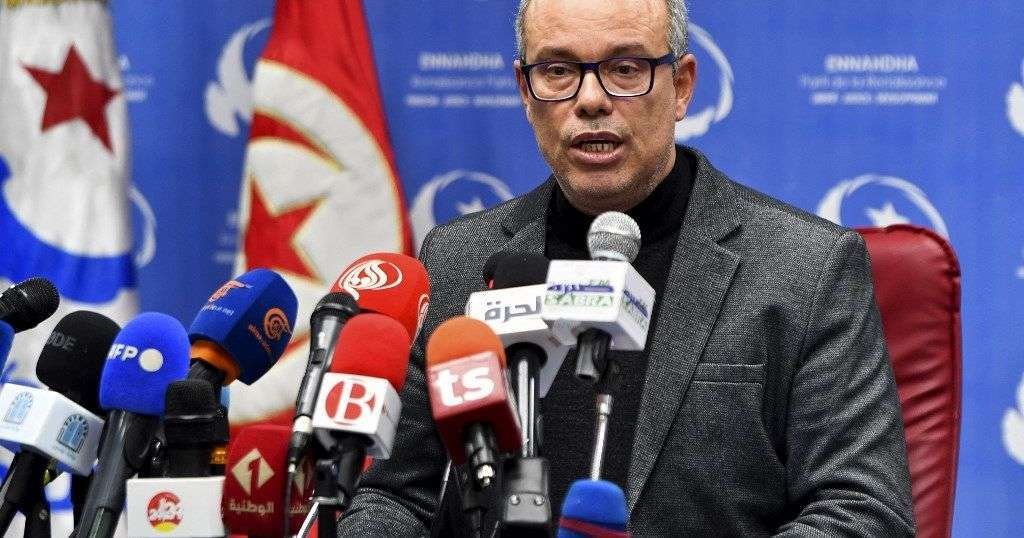Tunis, Tunisia – (African Boulevard News) – In what seems to be a further crackdown on opposition figures in Tunisia, two leaders of the Ennahdha party have been arrested. The party, which has been a thorn in the side of President Kais Saied, has seen several of its members detained in recent months. The arrests come nearly five months after the apprehension of the party’s historic leader, Rached Ghannouchi.
The arrested individuals are Nabil Karoui and Abir Moussi, prominent figures within the Ennahdha party. Karoui, a media mogul and former presidential candidate, was taken into custody on Tuesday evening. Moussi, on the other hand, is the leader of the Free Destourian Party and has been a vocal critic of Ennahdha.
The arrest of Karoui and Moussi is seen by many as a continuation of the government’s efforts to silence opposition voices. President Saied, who took office in July 2019, has been accused of consolidating power and suppressing dissent. Critics argue that these arrests further undermine Tunisia’s democratic progress.
“This is a clear attempt to stifle opposition and tighten the government’s grip on power,” said political analyst Amira Yahyaoui. “The government is using the judiciary to target its political opponents and intimidate those who dare to challenge its authority.”
The arrests have drawn condemnation from international human rights organizations. Amnesty International has called for the immediate release of Karoui and Moussi, stating that their detention is politically motivated and violates their rights to freedom of expression and association.
The Ennahdha party has also issued a statement condemning the arrests. “This is a blatant violation of democracy and a clear attempt to suppress opposition voices,” the statement read. “We call on the international community to intervene and put pressure on the Tunisian government to release our leaders.”
The arrests of Karoui and Moussi come at a time of mounting political tensions in Tunisia. The country has been grappling with economic challenges, public discontent, and a rise in political polarization. The arrest of these prominent opposition figures only serves to exacerbate these issues.
As Tunisia navigates through this difficult period, it remains to be seen how the government will respond to the growing criticism and calls for the release of Karoui and Moussi. The international community will undoubtedly be watching closely, as the future of Tunisia’s democracy hangs in the balance.

